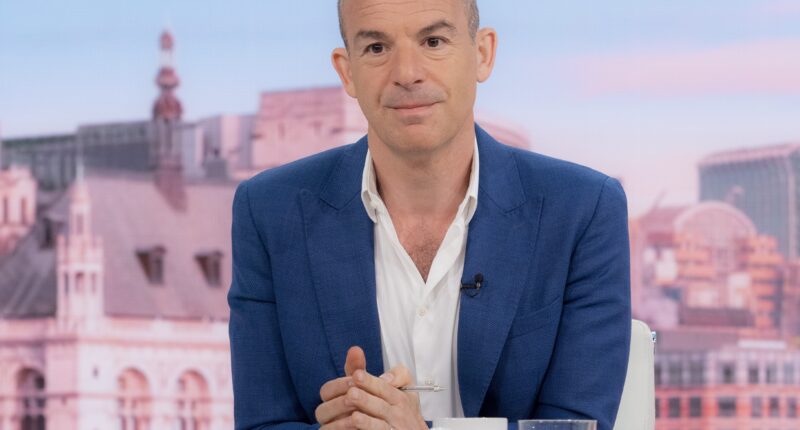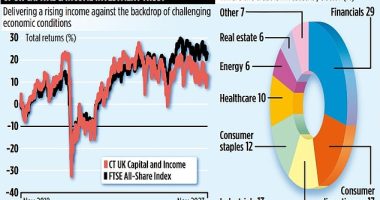MARTIN Lewis has issued a warning to all parents who could lose their Child Benefit in weeks – here’s how to avoid missing out.
The Money Saving Expert has urged people with children aged 16 to contact HMRC before the end of this month.
Child Benefit payments automatically stop when a child reaches the age of 16.
But, there is a loophole that allows parents to continue receiving this money until their child is 20-years-old.
Brits can claim for the extra four years, if their child is in full-time education, training, joining the army, or a Government sponsored careers programme.
Full-time is considered to be 12 or more hours per week, but a university degree or BTEC Higher National Certificate does not qualify.


Plus, any course that is being paid for by an employer will also not be viewed as approved education for the Child Benefit to be extended.
However, if your child does qualify, parents must notify the HMRC in order to stop the automatic cease of benefits – which will happen on August 31.
HMRC approved education for Child Benefit
To claim your child is in full time education they must be completing:
- A level or similar, such as Pre-U, International Baccalaureate
- T levels
- Scottish Highers
- NVQs and other vocational qualifications up to level 3
- Home education – if it started before your child turned 16 or after 16 if they have special needs
- Traineeships in England
The HMRC usually sends a letter to parents letting them know their Child Benefit is stopping.
To apply for further benefits, you can contact them by post, or using your Government Gateway account via GOV.UK
Most read in Money
If you miss the deadline there is still a chance of receiving the Child Benefit but you may have to wait longer.
Once the child’s education is completed, payments will also automatically stop at the end of either February, May, August or November.
It will land on whichever month is closest to the child’s finish date.
What is child benefit and who is eligible?
Child benefit is paid to parents to help with the costs of childcare.
Payments are usually made to you from the government every four weeks.
By claiming child benefit you also get National Insurance credits that count towards your state pension.
There are two different rates for child benefit.
Currently, parents can claim £24 per week for their first or only child – £96 a month and £1,248 a year.
For any additional children they can claim an extra £15.90 a week per child – £63.60 a month and £826.80 a year.
You normally qualify for child benefit if you live in the UK and are responsible for a child under 16.
When two or more people share the responsibility of caring for a child, it can only be claimed by one person.
You’ll be considered responsible for a child if you live with them, or you are paying at least the same amount as child benefit towards looking after them.
This might mean you are paying the equivalent amount of child benefit on food, clothes or pocket money.
Eligibility changes if a child goes into hospital or care and if your child starts to live with someone else.
Usually, you get child benefit for eight weeks after your child goes to live with a friend or relative – as long as they don’t make a claim.
But, it can continue for longer if you make contributions to your child’s upkeep.
Foster parents can also claim child benefit, as long as the council is not paying anything towards their accommodation or maintenance.
Legal guardians or parents adopting a child can also apply for the benefit, but the child has to be living with them.
For anyone not sure about eligibility, you can contact the Child Benefit Office.
What is the high income child benefit charge?
If either parent or carer starts earning over £50,000, they have to start paying the high income child benefit charge.
This means you have to pay back 1% of your child benefit for every £100 of income earned over the £50,000 threshold.
Once you reach £60,000 of yearly income you have to repay the full amount of child benefit received.
But what families might not know is that interest earned from savings accounts forms part of that income.
And with rates rising, savers will be edging closer to that threshold and could therefore have their child benefits cut.
Most people get something called the personal savings allowance, which lets you earn a chunk of interest before paying tax.
Basic rate taxpayers get £1,000 and higher rate taxpayers get £500.
Therefore, make sure you’re keeping on track of the interest being made from your savings just in case – it’s your responsibility to tell HMRC when things have changed.


Parents have been caught out by the complicated rules and extra charge and landed with bills for thousands of pounds.
It’s up to parents to notify HMRC if they are liable for the charge and they must file a self-assessment tax return to pay it.










